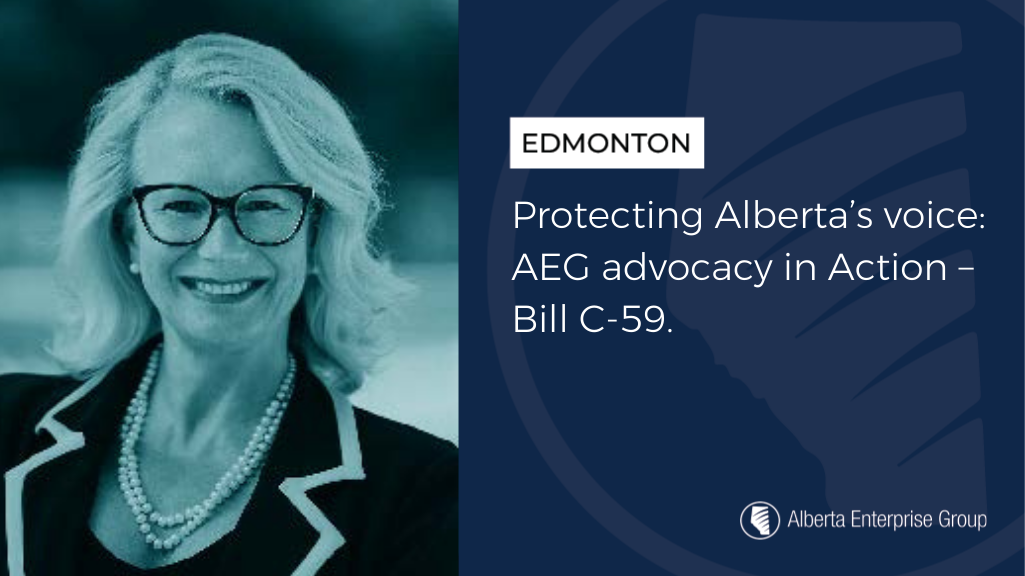In conjunction with other organizations, AEG filed a constitutional challenge against the federal “green washing” provisions of Bill C 59. Targeting sections 236 and 239 of the Fall Economic Statement Implementation Act, the suit argued the amendments to the Competition Act unjustly restricted Alberta businesses’ ability to discuss environmental impacts, threatening both free speech and provincial economic vitality.
This week, Premier Danielle Smith and Prime Minister Mark Carney signed a Memorandum of Understanding to explore fresh pipeline infrastructure – a rare alignment of Alberta and Ottawa. As Rational Optimists, Albertans seize the chance, recognizing that expanded pipeline capacity, stronger federal provincial ties, and a thriving Alberta are essential pillars of Canada’s long term prosperity.
The Hub’s latest analysis reveals a staggering $94-billion shortfall in the federal government’s investment plan, warning that dismissing the PBO’s independent, non partisan insights erodes confidence, fuels business uncertainty, and threatens Canada’s competitiveness. For Alberta’s SMEs and job creators, predictable fiscal policy isn’t a luxury – it’s essential for attracting investment and building a resilient economy.
Alberta stands at the threshold of a health innovation revolution. Recent breakthroughs in immune rejuvenation therapy point toward a future where chronic disease and age related decline may be tackled in entirely new ways. For Alberta, the opportunity is clear: healthier citizens, reduced healthcare strain, and a globally competitive leadership position in longevity science, AI enabled health solutions, and biotech commercialization.
With every technological breakthrough comes a shift in how we act and interact. AI is no different – while many of us quickly integrate it, the question remains: will it replace us? In some tasks, yes; in others, never. The skill that will set future generations apart is networking – the in person connections AI simply can’t replicate.
President Javier Milei’s victory in Argentina signals a decisive shift from endless spending to necessary austerity. After years of runaway deficits and soaring inflation, his message warns that the same fiscal strains now grip the U.S., Canada and Europe. At AEG, we argue that Canada’s upcoming budget must adopt the same fiscal discipline that has kept Alberta’s economy resilient and prosperous.
Over 2,000 construction, design, and real estate pros gathered in Calgary for BUILDEX Alberta – a two-day showcase of innovation and industry leadership. Backed by ICBA & ICBA Alberta, the event underscored the industry’s crucial role in Alberta’s growth and the challenges needed to keep Canada’s building economy competitive.
Every October, Canada honours the entrepreneurs who power our economy during Small Business Week. With over 1.1 million employer businesses nationwide and 135,978 small firms in Alberta alone, this celebration highlights the vital role of local enterprises. AEG calls on citizens, policymakers, and business leaders to support, advocate, and celebrate these innovators, turning a week of recognition into lasting action.
Governments don’t build industries – they set the policy groundwork that lets innovators thrive. That truth is on display in the fast moving Small Modular Reactor (SMR) sector. While Canada navigates its regulatory path, led by pioneers like GE Hitachi, the United States is racing ahead. The winners aren’t legacy nuclear giants, but agile SMEs reshaping nuclear power into something smaller, safer, and scalable. Alberta can adopt this playbook.
Alberta Enterprise Group (AEG) applauds Premier Danielle Smith’s decision to champion a new West Coast pipeline – a bold move that strengthens Alberta’s economy, attracts investment, and opens global markets for all sectors. AEG also commends the government’s commitment to Indigenous partnership and shared prosperity as the foundation for Canada’s economic future.











